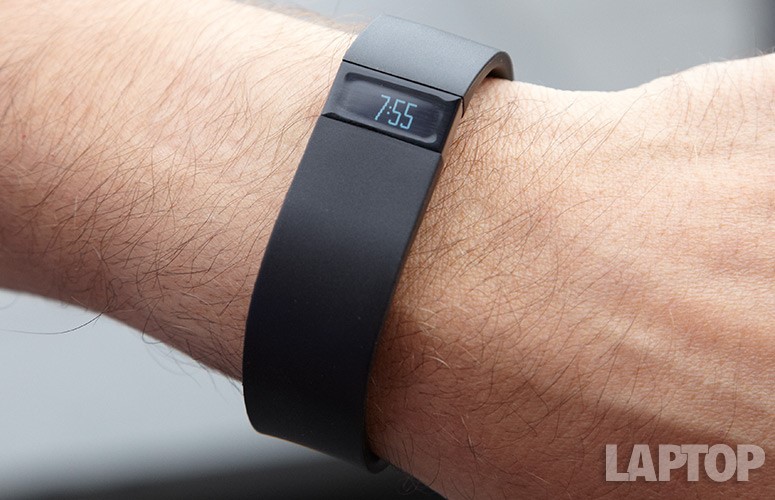How the Information Age Can make us Healthier, Happier Human Beings
Technology by itself does not represent a moral good or negative. Rather, it presents greater opportunity – more options – for people to make use of it in one way or another. Consider that the atomic bomb was possible in large part thanks to a breakthrough in nuclear energy research from some of the 20th century’s foremost physicists working on the Manhattan Project, or that the most massive concerted effort at genocide the world has ever seen in the Holocaust was only so destructive because of experimentation with the deadly gas Zyklon B, a chemical technology that claimed the lives of millions of Jews.
On the less extreme side of the spectrum, a study recently released by University of Michigan psychologist Ethan Kross argued that social networking technology like Facebook – ostensibly something that can keep us more in touch with others in our lives, even those separated by geographical distance – actually serves to makes us more sad and lonely. Rather than serving as a resource for the basic human need of social connections with friends and family, Kross argues that Facebook undermines this need by increasing our capacity to envy that which we do not have, yet which we see others have.
http://www.newyorker.com/wp-content/uploads/2013/09/facebook-mobile-580.jpeg
Yet, all of this ignores the other side of the equation, namely that all of this new information can be used for the amelioration of humankind, and can actually make us happier if we choose to individually and collectively, and if we choose to consume technology within moderation. Studies like the above that demonstrate passive participation and total immersion in the digital realm seem to suggest increased feelings of social alienation and thus unhappiness, but that does not have to be the norm.
More Informed Living
One thing technology has increased in the age of the internet is global exposure to the way that other people live. For the ‘haves’ of the world – for argument’s sake, those with a computer or smartphone and internet access are among the more fortunate, wealthier people – they are able to see how many advantages they enjoy in comparison to many in the world who do not have access to basic necessities like running, potable water or a roof over their head at night. This effect of increased exposure thanks to globalisation serves to inspire a sense of gratitude for things these individuals may have very well taken for granted. The very fact that an online meme referred to as ‘First World Problems’ exists speaks to this fact; when your favourite restaurant’s Wi-Fi cuts out and you lose your Skype connection with that friend you were talking to, that seems to pale in significance to the fact that many do not have the resources to put food on the table for their hungry children.
We do not just know more about others but ourselves too, thanks to the advent and increasing ubiquity of biometric devices designed to measure everything from sleep cycles to our calorie input and output. When we have more information about how many minutes we need to run to get down to an ideal weight to maintain that ideal figure, we are able to better devise routines to achieve our personal goals and thus feel better about ourselves. The popularity of devices like the Fitbit speaks to how people have embraced this technological edge.
Information comes to us through greater exposure to inspiration, whether that is in the form of athletes we follow on twitter posting videos of them working out, or whether we are browsing for encouraging quotes on the ‘r/GetMotivated subreddit’ of the popular internet forum Reddit. Furthermore, trends like the yoga explosion of the past decade, or greater exposure to research being publicized about the positive effects of daily meditation can also influence our lifestyle now that this kind information more readily available than ever, thanks to the power of the internet. Finally, while studies have suggested social media sites like Facebook can have detrimental effects when used passively and in excess, other studies have argued there is a tangible benefit to staying in touch with loved ones.
New Lifestyles
There are also new forms of entertainment possible thanks to emerging technologies. Like many new bingo sites that pop up like mushrooms in the rain, our favourite forms of entertainment are increasingly catered to our interests. The mechanics of virtual slot machines remains the same, for instance, but we can choose if we want a South Park-themed game, or one with a sci-fi theme like the iconic Aliens movie.
At the same time, we are sitting on the doorstep of virtual reality, which could actually do more than just entertain, but help engage bed-ridden victims of debilitating illnesses in enthralling experiences they might not otherwise have access to. Similarly, ask an amputee or a near-deaf person if technology has improved their lives by virtue of now being able to walk again with a prosthetic leg, or hear normally thanks to hearing aids. For those that love to travel, or even live abroad and find a way to work on the road, the internet economy has provided a way for these people to stay connected with family back home while even earning a living that would not have been possible even 20 years ago.
In all of these cases, balance and moderation have to be guiding principles if we are going to use man made technology to further the human experience, not diminish it. Technology undoubtedly has the potential to increase human happiness; it’s up to us to make the decision to use it wisely.
* hero image used from http://floridapolitics.com/wp-content/uploads/2015/06/technology.jpg




Leave a Reply